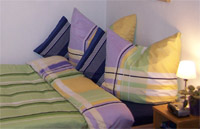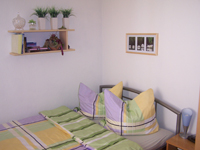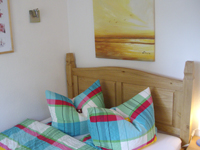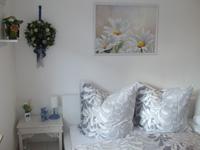With the apartment Cologne in the Hahnwald

Let's go to Ferienwohnung-Koeln.com in the Hahnwald district . There the population density is strikingly low, namely only 701 inhabitants per km². The area number is 207 and the area code is 02236. The villa town Marienburg is nearby. Also Rodenkirchen and Sürth .
| District number | area | residents |
| 207 | 2.99 square kilometers | 2,000 |
The zip code is 50996 and the political assignment was made to the district Rodenkirchen .
The low population density is easy to explain: The Hahnwald is a very expensive and luxurious villa resort ! Rich people live here in extraordinary villas or houses.
History of Cologne Hahnwald
The name came from the former location of the grove, which was called "Hendtgen" in 1610 and then from 1800 as "Haalen". So you see a constant change in the name. The district was only officially founded in 1949, making the Hahnwald one of the youngest districts of Cologne .
.gif)
.gif)
.gif)
.gif)
.gif)
.gif)
.gif)
.gif)
.gif)
.gif)
Traffic
What is striking is the poor connection with public transport . Only the bus of KVB (Kölner Verkehrsbetriebe) with number 135 travels. This may be due to the fact that the wealthy residents all drive. The next freeway is 555.
Villas and location
The district is characterized by the many villas and spacious gardens and a very old tree population. It is also striking that apart from a farm and a nursery there are no shops or commercial areas at all! No churches and no other facilities. It is actually a pure luxury residential area. Each plot has a minimum area of 2,000 square meters and you can imagine how beautifully the gardens are laid out there. However, you can usually not see them, since the plots are surrounded by high walls and fences. Security cameras are also typical. There is even a security service that roams the streets of the housing estate day and night.
Apartment Cologne Tip
If you came to Cologne by car, you could drive through the streets of the settlement to take a picture of the exclusive area. Maybe you will see Stefan Raab!

Prominent residents
Of course, many wealthy and well-known people live in such an exclusive area. After all, you want to be among yourself. Here is a small list of some well-known personalities and residents:
- Katja Burkard
- Christoph Daum
- Toni Kroos
- Hans Meiser
- Oliver Pocher
- Stefan Raab
- Vitalis Pantenburg (see below)
Vitalis Pantenburg at a glance
The German writer Vitalis Peter Joseph Pantenburg was born on June 3, 1901 in Wittlich in the Rhineland and died in 1980. In addition to his literary work, he mainly worked as a graduate engineer and economic geographer, journalist, translator and photographer in appearance. He focused on the economic geography of the Arctic and subarctic, the energy industry and hydraulic engineering. But it is not only these extraordinary research areas that are likely to attract attention. Pantenburg is particularly controversial to this day, since he appeared as a war spy serving the Nazis.
.gif)
.gif)
.gif)
.gif)
A man of the world
After graduating from the Schiller Gymnasium in Cologne , nothing initially kept him in North Rhine-Westphalia. His studies in economic geography, energy management and electrical engineering led him to Hanover within Germany, later to Stuttgart , Braunschweig and to Munich . Through numerous study trips and expeditions, he should also get to know the Nordic countries of Scandinavia, Iceland, Greenland, Central Arctic and Canada better.
First publications and espionage activities
During the 1930s and 1940s Pantenburg first appeared through his publications . He was supposed to make a name for himself through National Socialist writings, while also working for the Cologne radio station. Articles such as "An Encounter with the Swastika in the Far North" from 1935, but also articles in the National Socialist monthly magazine "Norwegens Ragnarok" left no doubt as to its racial political orientation. But not only that: He was also the managing director of "Rhein-Kontor", a Cologne branch that worked for the Nordic Society. In the run-up to the First World War, this was considered an important German espionage organization in the Scandinavian countries.
Encounter with the Arctic
Pantenburg should by no means extend its feelers to the far north. With one of his publications from 1937, he asked himself the question, "Who owns the Arctic?" However, his book "Russia's Grasp for Northern Europe", published in 1938, was much better known. In it he expressed himself very benevolently towards the Finnish people, who knew how to defend themselves against the Russian expansion. He should also maintain this partisanship in his essay "The Red Shadow over Northern Scandinavia" published in 1941. In any event, in the Soviet zone of occupation of post-war Germany, Pantenburg's publication "Russia's Grip around Northern Europe" should be placed on the index of banned books.
.gif)
.gif)
The specialist for Scandinavia
When it came to Scandinavia, Pantenburg was supposed to be a special expert throughout his life, especially with regard to the Soviet-Finnish War in 1939/40, about which he published several books and articles. He had witnessed this himself while working in Scandinavia and therefore knew what he was talking about. However, with all his specialist knowledge, his writings were by no means only aimed at scholars. He also published books for young people and illustrated books. In numerous lectures for the radio he also informed his audience about Finland and the far north in general.
How his environment perceived him
Pantenburg was perceived abroad as a high Nazi and was also considered one of the best spies in Europe who worked for the Nazis. In Finland he even had the title of master spy. His research activities and numerous stays in Scandinavia made his work as a spy extremely easy. It should therefore come as no surprise that Pantenburg was summoned to Lapland in spring 1940 as head of German intelligence. Here he succeeded in all strategically important military plans concerning the Arctic during his short activity of only three weeks. But when he was photographed at the Swedish fortress Boden and caught doing so, he was immediately arrested, interned in Sweden, and deported only a short time later.
Office of the Reich Aviation Ministry
However, this episode should by no means prove to be the end of his career. Because in 1943 he was chosen as Head of the "Arctic Trial Center" of the Technical Office of the Ministry of Aviation in Finse, Norway. Here his main task was the training of personnel in weather stations as well as the testing of the local equipment and the research of living conditions under the extreme polar conditions. His research results on military weather reconnaissance should be groundbreaking and prove to be crucial, especially in the fight against the Allied Northern Sea convoys.
After the Second World War
Pantenburg should continue to appear regularly on the radio even after the Second World War and become well known as a radio and television author. From 1945 Pantenburg was a research assistant at the Archive for Polar Research in Kiel. Between 1951 and 1971 he was to publish regular specialist articles in the local magazine, but also continue to write non-fiction books privately. But he was also a member of the "American Polar Society" and the "Canadian Arctic Circle". These memberships brought him to the board of the German-Icelandic Society after the war. With his wife Lieselotte Kattwinkel, who was a writer like him, he was to undertake a study trip to Canada in 1949/50. However, Pantenburg's previous entry was hotly debated in the Canadian House of Commons. Because it did not suit everyone that the former Nazi spy should visit the country. The study films were later to be used to create the cultural films "New Territory in North America" and "Here the World Begins Again". Already in the pre-war period the couple lived in real estate in the south of Cologne, in 1938 in Rodenkirchen , and then in the late 1950s a property in Hahnwald .
Vitalis Pantenburg - A summary
The writer and scientist Pantenburg concentrated primarily on popular scientific works that were aimed not only at adults, but also at children and adolescents. He also published numerous youth books, but also radio plays, films and reports for television. But travel guides, such as the guide to the Eifel, which was reissued until the 1990s, were also very popular. In numerous other articles and treatises for specialist journals, Pantenburg describes his research results and experiences in the areas he has traveled to. For the 1940s, it can be seen that Pantenburg focused primarily on Finland, while after the Second World War he mainly dealt with Canada. In total, Pantenburg can look back on over 370 publications that have been published in at least 6 languages.
There is definitely not a single pension or hotel in Hahnwald. Or temporary living ? A holiday apartment is probably not to be found here either. Maybe there is a rich athlete who rents his villa on Airbnb in his absence? We don't know!



